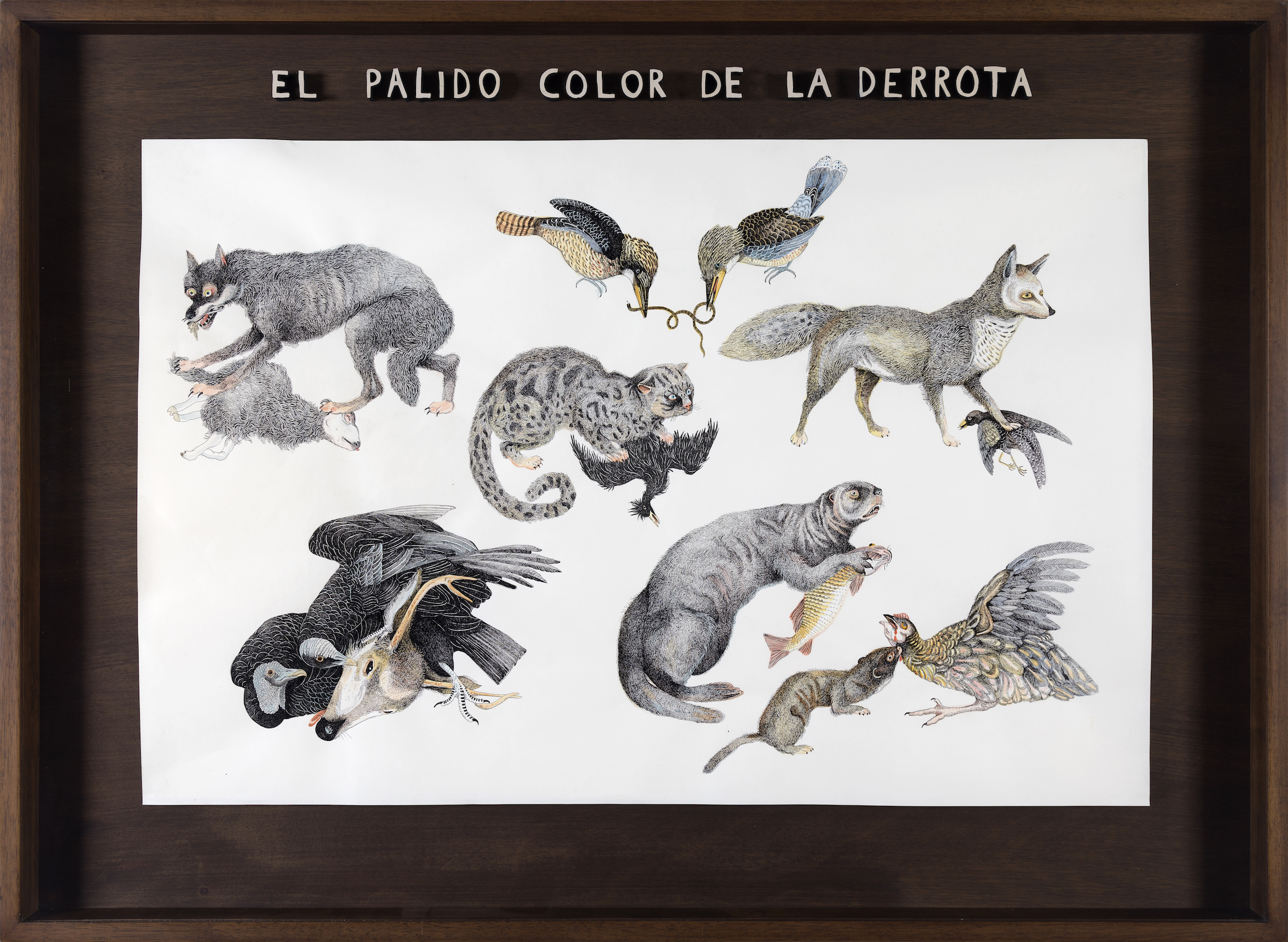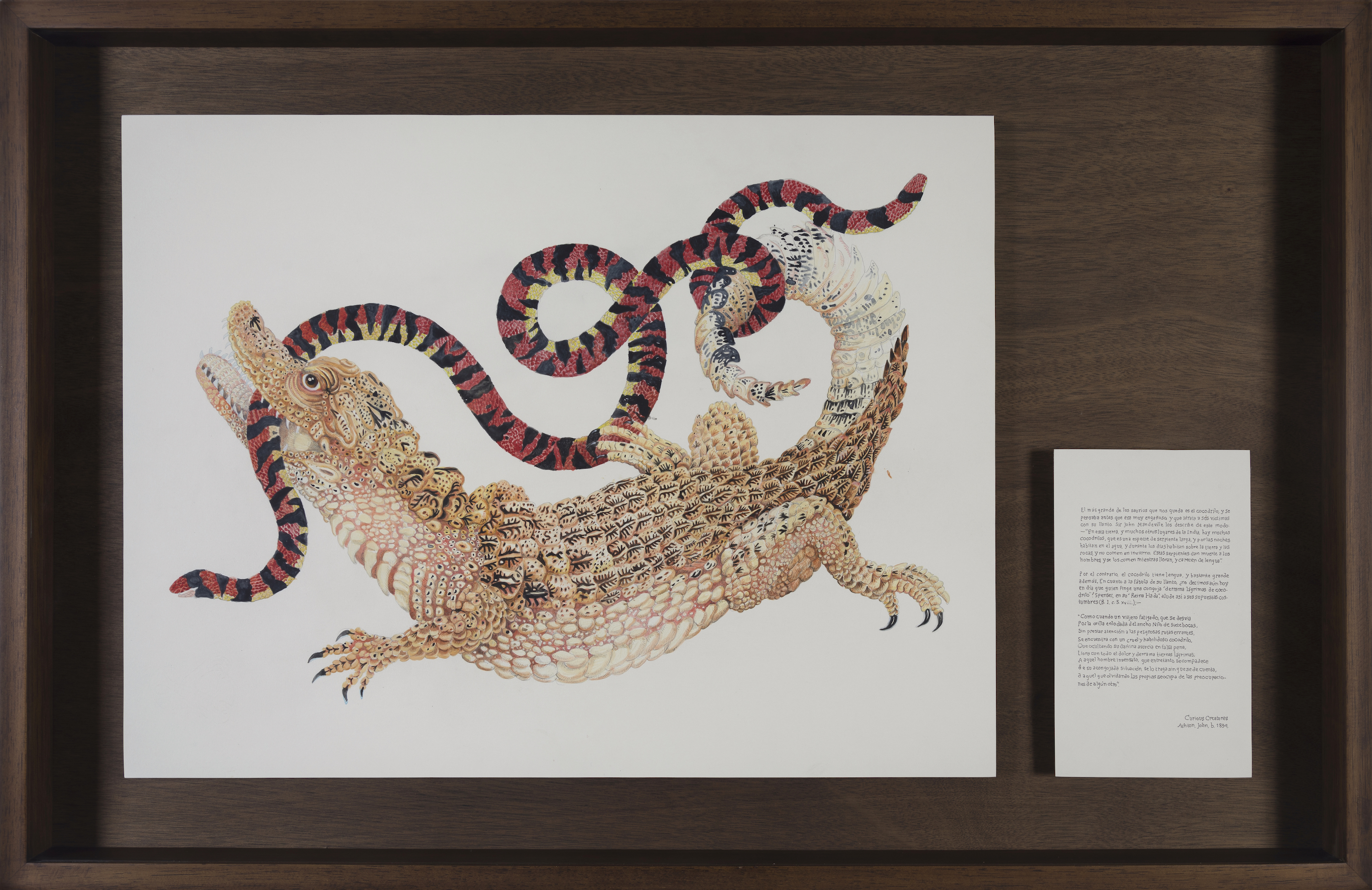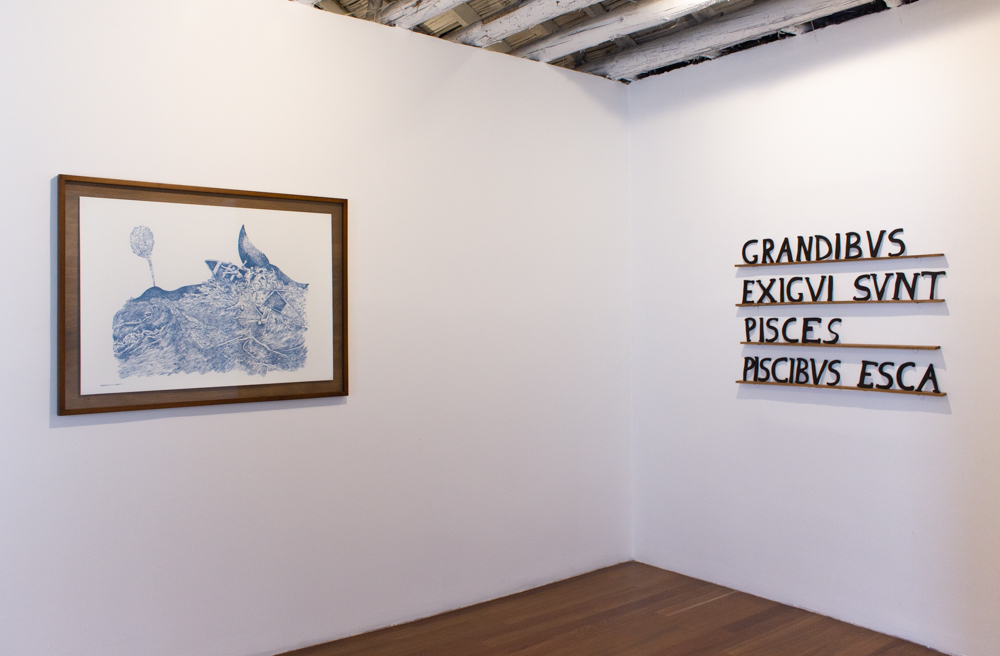Venationes ferarum / 2019







Venationes is the name given to the spectacles held in the public arenas of Ancient Rome. This form of entertainment, based on the siege and subsequent death of wild and exotic animals, was intended to demonstrate power and authority over these animals, which were considered inferior and therefore subject to human domination. Such events were depicted in the form of paintings and mosaics, always highlighting the superiority of one side. However, it was not until the 19th century that venationes became a genre of engravings illustrating the hunting of "wild beasts" - real or from bestiaries - in all kinds of settings.
In his most recent project, Kevin Mancera focuses his interest on these representations and the relations of sovereignty present therein, while exploring notions of colonisation and savagery. The artist divides the exhibition into two main themes: the struggle of man against animal and the encounter between peers, with power being the transversal condition of each of the scenes depicted and death the consequence of many. Thus, the images constructed from numerous ancient engravings become great scenes of war and hunting in which all or nothing seems to be the main expression. This allows multiple readings to be derived from them that question the incidence of power in the quest to prevail.
The way the pieces are arranged in the space and the integration of texts also raises a question about the positions of command, not only in relation to hunting but also to the territory, as it shows a series of ranks, following a script similar to that of a Natural History Museum. In Venationes Ferarum, the text is no longer part of the drawing - as is the case in much of the artist's work - but is detached from it and becomes a tool that supports not only the interpretation of the piece but of the exhibition as a whole. In this way, Mancera alludes to the hierarchy imposed by humans on "wild beasts" and in some cases on their fellows, in which, regardless of the position, the big fish always eats the smaller one.
María Fernanda Mancera